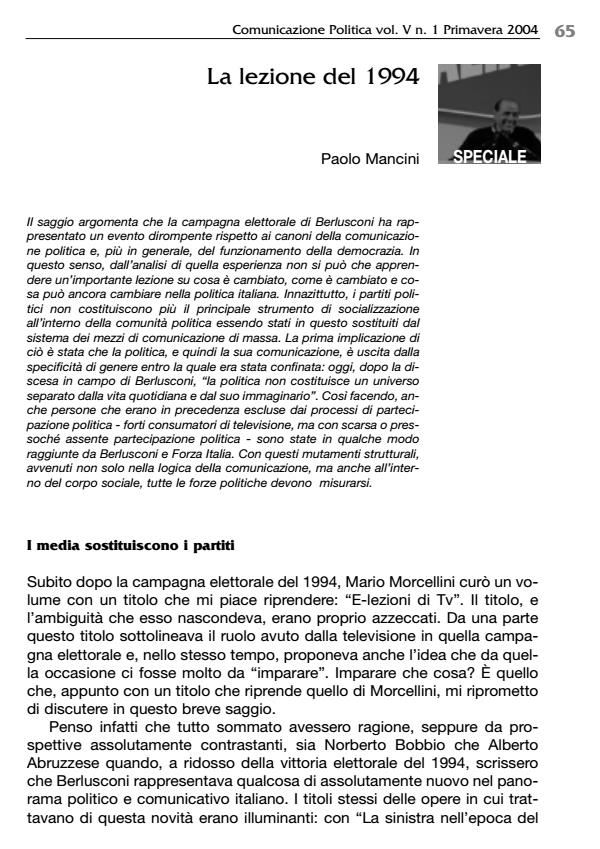La lezione del 1994
Journal title COMUNICAZIONE POLITICA
Author/s Paolo Mancini
Publishing Year 2004 Issue 2004/1
Language Italian Pages 8 P. File size 43 KB
DOI
DOI is like a bar code for intellectual property: to have more infomation
click here
Below, you can see the article first page
If you want to buy this article in PDF format, you can do it, following the instructions to buy download credits

FrancoAngeli is member of Publishers International Linking Association, Inc (PILA), a not-for-profit association which run the CrossRef service enabling links to and from online scholarly content.
The essay argues that Berlusconi’s electoral campaign represented an extraordinary example, vis-à-vis the traditional practices in political communication and, generally, vis-à-vis the normal functioning of the democratic system. It is exactly Abstracts compol1/2004 25-02-2004 19:28 Pagina 192 193 by analysing this experience that it is possible to learn an important lesson regarding what has changed, how and what may still change in Italian politics. Firstly, political parties no longer represent the main means of socialisation within the political community, since they have been replaced in this role by the mass media. The main implication for this is that politics (and consequently political communication) is no longer part of a specific domain, in which it had been previously confined: today, after Berlusconi entered the field, politics is no longer detached from daily life and its imagery. In so doing, even those who had previously been excluded from political participation processes (i.e. heavy consumers of television programmes, but reluctant to, even alienated from, participating in the political process) have been somehow reached by Berlusconi and Forza Italia. It is precisely against these structural changes, which have affected not only political communication, but also the entire social body, that all political forces should measure themselves.
Paolo Mancini, La lezione del 1994 in "COMUNICAZIONE POLITICA" 1/2004, pp , DOI: